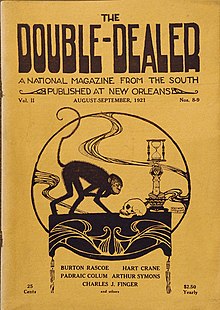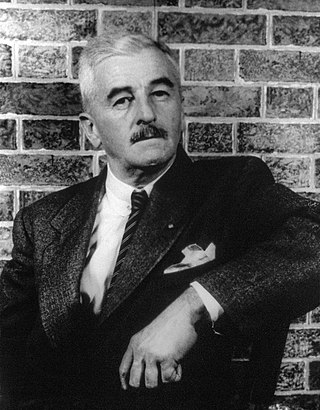
William Cuthbert Faulkner was an American writer. He is best known for his novels and short stories set in the fictional Yoknapatawpha County, Mississippi, a stand-in for Lafayette County where he spent most of his life. A Nobel laureate, Faulkner is one of the most celebrated writers of American literature and often is considered the greatest writer of Southern literature.

Walker Percy, OblSB was an American writer whose interests included philosophy and semiotics. Percy is noted for his philosophical novels set in and around New Orleans; his first, The Moviegoer, won the National Book Award for Fiction.

Malcolm Cowley was an American writer, editor, historian, poet, and literary critic. His best known works include his first book of poetry, Blue Juniata (1929), and his memoir, Exile's Return, written as a chronicler and fellow traveller of the Lost Generation and an influential editor and talent scout at Viking Press.
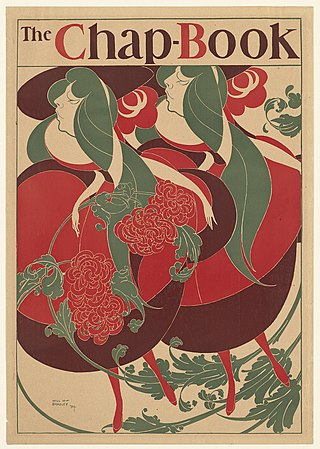
In the United States, a little magazine is a magazine genre consisting of "artistic work which for reasons of commercial expediency is not acceptable to the money-minded periodicals or presses", according to a 1942 study by Frederick J. Hoffman, a professor of English. While George Plimpton disagreed with the diminutive connotations of "little", the name "little magazine" is widely accepted for such magazines. A little magazine is not necessarily a literary magazine, because while the majority of such magazines are literary in nature, containing poetry and fiction, a significant proportion of such magazines are not. Some have encompassed the full range of the arts, and others have grown from zine roots.
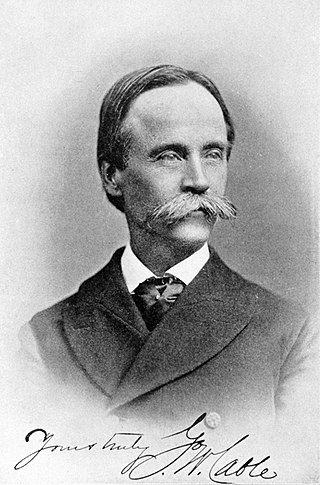
George Washington Cable was an American novelist notable for the realism of his portrayals of Creole life in his native New Orleans, Louisiana. He has been called "the most important southern artist working in the late 19th century", as well as "the first modern Southern writer." In his treatment of racism, mixed-race families and miscegenation, his fiction has been thought to anticipate that of William Faulkner.

Southern United States literature consists of American literature written about the Southern United States or by writers from the region. Literature written about the American South first began during the colonial era, and developed significantly during and after the period of slavery in the United States. Traditional historiography of Southern United States literature emphasized a unifying history of the region; the significance of family in the South's culture, a sense of community and the role of the individual, justice, the dominance of Christianity and the positive and negative impacts of religion, racial tensions, social class and the usage of local dialects. However, in recent decades, the scholarship of the New Southern Studies has decentralized these conventional tropes in favor of a more geographically, politically, and ideologically expansive "South" or "Souths".
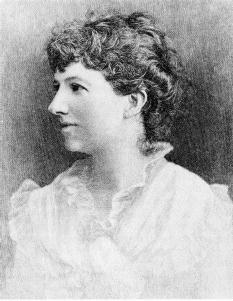
Grace Elizabeth King was an American author of Louisiana stories, history, and biography, and a leader in historical and literary activities.

Samuel Louis Gilmore was a U.S. Representative from Louisiana.
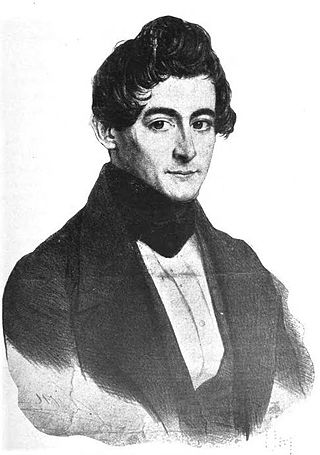
Adrien Rouquette was a Louisiana Creole writer, poet, and Catholic missionary to the Choctaw Native Americans, among whom he was also known as Chahta-Ima.
James Nolan is a poet, fiction writer, essayist, and translator. A regular contributor to Boulevard, his work has appeared in New Orleans Noir, Utne Reader, The Washington Post, Poetry, and Southern Review, among other magazines, anthologies, and newspapers. He has translated the work of Spanish-language poets Pablo Neruda and Jaime Gil de Biedma. Nolan is a fifth-generation native of New Orleans and lives in the French Quarter.

John William Corrington was an American film and television writer, novelist, poet and lawyer.

Contempo, A Review of Books and Personalities was a "literary and social commentary" published by Milton A. Abernethy and Anthony Buttitta at Chapel Hill, North Carolina from 1931 to 1934. Though less well-known than some of its contemporaries, Contempo fits into the tradition of the "Little Magazine," a group of elite literary magazines pervasive in the first decades of the twentieth century.
New Orleans Review, founded in 1968, is a journal of contemporary literature and culture that publishes "poetry, fiction, nonfiction, art, photography, film and book reviews" by established and emerging writers and artists. New Orleans Review is a publication of the Department of English at Loyola University New Orleans. Lindsay Sproul is the current editor-in-chief.
John Peebles McClure was an American poet and one of the founding editors of The Double Dealer literary magazine.

Black Orpheus was a Nigeria-based literary journal founded in 1957 by German expatriate editor and scholar Ulli Beier that has been described as "a powerful catalyst for artistic awakening throughout West Africa". Its name derived from a 1948 essay by Jean-Paul Sartre, "Orphée Noir", published as a preface to Anthologie de la nouvelle poésie nègre et malgache, edited by Léopold Sédar Senghor. Beier wrote in an editorial statement in the inaugural volume that "it is still possible for a Nigerian child to leave a secondary school with a thorough knowledge of English literature, but without even having heard of Léopold Sédar Senghor or Aimé Césaire", so Black Orpheus became a platform for Francophone as well as Anglophone writers.
The literature of Louisiana, United States, includes fiction, poetry, and nonfiction. Representative authors include Kate Chopin, Alcée Fortier, Ernest Gaines, Walker Percy, Anne Rice and John Kennedy Toole.

Hubert Horton McAlexander is a scholar of Southern literature and culture and a Josiah Meigs Professor Emeritus in the University of Georgia’s department of English. In addition to numerous articles on William Faulkner and other nineteenth- and twentieth-century Southern authors, he wrote biographies of Sherwood Bonner and Peter Taylor and edited a collection of critical essays on Taylor and a volume of interviews with Taylor. He has also published books and articles on regional history, especially the region of northern Mississippi that inspired William Faulkner’s fiction.

Ida Weis Friend (1868–1963) was a suffragist, philanthropist and lifelong advocate for progressive causes in New Orleans. In 1920, she became the first woman from Louisiana to serve as a delegate to the Democratic National Convention.
William Kenneth Holditch was a Professor Emeritus of English at the University of New Orleans. He was one of the pre-eminent scholars of the American playwright Tennessee Williams. Notably, he co-founded the Tennessee Williams Literary Festivals in New Orleans; Columbus, Mississippi; and Clarksdale, Mississippi, and he served on the advisory board of the festival in Provincetown, Rhode Island. His published works include Tennessee Williams and the South and The World of Tennessee Williams with Richard Freeman Leavitt as well as co-editor with Mel Gussow for the Library of America's Tennessee Williams Plays 1937-1955.
